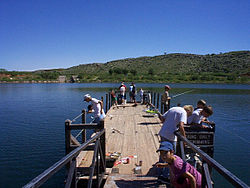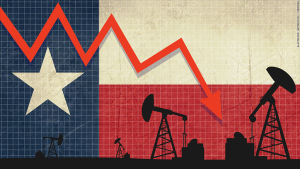It’s been said for more than a century that the Spindletop oil boom in the Golden Triangle fueled the Texas economy. Pattillo Higgins’s gusher signaled a boom that knew no equal at the time.
That was then and there … way down yonder. Way up on the High Plains, water has been the fuel that runs the economic engine. On two, maybe three levels at that.
It irrigates our crops, giving farmers commodities to harvest and to feed the cattle that graze on the ranch land. It also quenches the thirst of we human beings who live here. And, yes, it provides recreational opportunities at places like, oh, Lake Meredith.
The lake’s national recreation area has recovered quite nicely from the bad ol’ days when the lake levels dropped to around 26 feet. Lake Meredith now stands at about 75 feet, attracting boaters, campers, fishermen and women, hikers, bikers, horseback riders.
Man, life is good at Lake Meredith these days.
As the Amarillo Globe-News reports: For the sixth consecutive year, the Lake Meredith National Recreation Area saw an increase in total visitor spending, job creation and economic output. There’s a direct correlation between the amount of people coming to the park and the amount of water in the lake, said Paul Jones, chief park ranger.
Last year, 1.329 million people came to the lake to boat or fish or camp, according to a new report from the National Park Service. Jones, who has worked at Lake Meredith for 20 years, said, “back in the ’80s, it was rockin’.” He said it was common for 1.5 million visitors to trek to the lake annually.
Then the drought started, water levels dropped and crowds dried up.
The water has returned. So have the crowds. This spells good fortune for the Texas Panhandle.
Where did the water originate? We had a wetter-than-normal year in 2017, despite the dryness of the fourth quarter of the year. The front of the year produced enough precipitation upriver along the Canadian River to allow release of water from Ute Lake Dam, N.M., which then flowed into Lake Meredith.
To be honest, the shocking receding of water levels in 2011 gave me pause to wonder if the lake ever could recover. Silly me. My concern was misplaced.
One more thing: The value of water to our region’s economy — from agricultural, human consumption and recreational aspects — should tell us all that we need to protect it, guard it, cherish it for future generations to enjoy … and survive.

